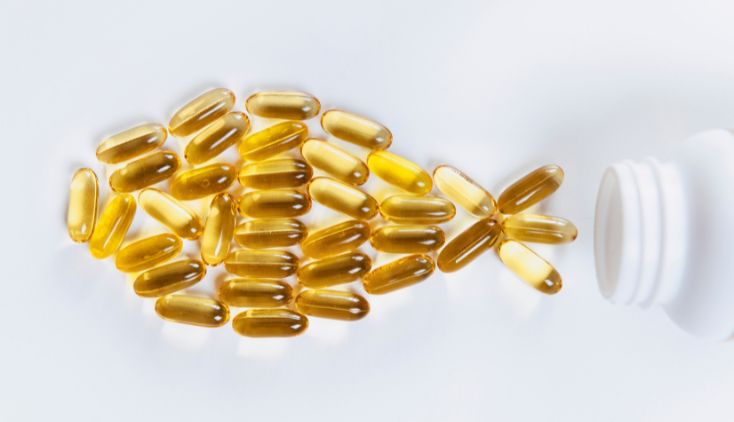Achieve Optimal Heart Health
Cardiovascular diseases are the leading cause of death worldwide. High cholesterol is a well-known marker of heart disease. Thus, if you had high cholesterol at your recent doctor’s appointment or your family has a history of heart attacks and heart disease, you may want to consider specific cholesterol-lowering supplements.
Before diving in, it’s important to note that including exercise and a healthy diet in your lifestyle regime to lower your cholesterol levels is crucial, as relying on supplementation only isn’t a viable long-term strategy. Additionally, you will want to discuss your options with your doctor before implementing a new supplement routine.
With that in mind, here are five cholesterol-lowering supplements to add to your diet.
1. Fish Oil
Studies indicate that fish oil can reduce low-density lipoprotein (LDL), also known as “bad” cholesterol.” Essentially, fish oil is a supplement derived from oily fish, such as mackerel, herring or salmon. It can be found in both capsule or liquid form, leaving it up to the consumer as to how they wish to consume it.
Fish oil is often talked about for its omega-3 content, which is associated with lowering one’s risk of heart disease, improving arthritis and even supporting proper fetal growth throughout pregnancy.
The downside? Taking fish oil may cause a fishy aftertaste and bad breath, meaning popping a mint after is encouraged. It may also react with some blood-thinning medications, indicating the importance of discussing your options with your doctor before taking a fish oil supplement.
2. Green Tea Extract
Green tea is frequently associated with its fat-burning effects but that’s not all this tea and supplement are good for. Research shows that green tea can also lower “bad” cholesterol. On top of this, it also contains plenty of antioxidants, which can lower inflammation and protect your heart and other organs from damage.
3. Berberine
Berberine is a natural chemical derived from plants. With a wide array of benefits, it’s thought to help lower cholesterol, improve blood sugar levels and reduce testosterone. In terms of lowering high cholesterol, research supports these findings, suggesting that berberine may be a viable option for individuals who are resistant to statins.
Yet, this supplement is not suitable for those who are pregnant or breastfeeding. It may further aggravate some digestive symptoms in certain individuals.
4. Flaxseed Oil
Flaxseeds and flaxseed oil are high in omega-3 fatty acids, which can boost brain and heart health. Research suggests that flaxseeds and flaxseed oil may help reduce the risk of heart disease by lowering blood pressure and reducing total and “bad” cholesterol levels.
As with many supplements, again, discussing the best option for you and your health with your doctor is important. Flaxseeds and flaxseed oils have many drug interactions and may not work well if you’re already taking anticoagulant medications, blood pressure drugs, diabetes medications or hormone replacements.
5. Niacin
Niacin is one of the many B vitamins, and yes, it might just help lower “bad” cholesterol levels. It’s thought to lower “bad’ cholesterol while simultaneously raising “good” cholesterol. Essentially, niacin does this by inhibiting the enzyme in the liver that contributes to the creation of “bad” cholesterol.
Side effects when taking this supplement are rare unless taken in high doses. At the same time, like many supplements, you may need to take niacin for a few weeks or months to notice any changes.
What About Red Yeast?
Red yeast may also help lower cholesterol. However, many experts advise against it due to the differing amounts of the active substance found in it. Side effects of taking this may include muscle damage, kidney damage and liver damage, making it not entirely worthwhile. In fact, the FDA doesn’t allow any supplements or drugs containing higher than trace amounts of this ingredient to be sold in the United States.
What Else Should You Know?
Cholesterol-lowering supplements should be your last stop when seeking out ways to lower your cholesterol. At first, with the help of your doctor and other experts, focus on lifestyle changes, such as:
- Quitting smoking.
- Reducing trans fats in your diet.
- Increasing soluble fiber intake.
- Pay attention to food labels.
- Start a regular exercise routine.
- Prioritize getting enough sleep each night.
- Drink plenty of water.
Again, this may vary from individual to individual. In some cases, genetic factors may be at play, and lifestyle changes may only make small changes. This is why it’s important to discuss what is best for you with your family doctor. They can help you determine the best path forward so you don’t become part of the heart disease statistics!
Check out some supplements that help with weight loss.
